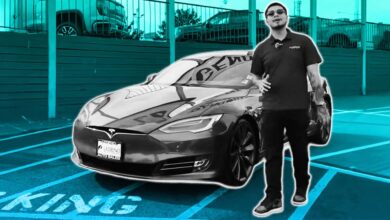EV Batteries Can Easily Outlast A Typical Gas Car’s Lifespan: Study

- EV battery degradation is almost a non-issue, a new study found.
- On average, a modern EV’s battery degrades by 1.8% per year.
- Most batteries can last 20 years or more.
The high-voltage battery pack of an electric vehicle is often the main weapon of choice for people who have never driven an EV but like to discredit the technology. “It won’t last more than a couple of years” is a sentence that I’ve heard time and time again when talking to gas car enthusiasts about EVs.
Despite the overwhelming amount of data that proves otherwise, there are still people out there who think a modern EV will conk out if you even look at it the wrong way. Well, now there’s even more data regarding battery health in the long run, and it’s good news for both current EV owners and those who are looking to get their first battery-powered car.
According to Geotab, a United Kingdom company providing vehicle telematics, most EV batteries can last 20 years with minimal annual degradation. That’s six years more than the average car age in the United States.
Over this generous timespan, EV batteries suffer from about 1.8% degradation per year. This means that you’ll lose 1.8% of the original range every year–not ideal, but certainly not a dealbreaker. After 20 years, if nothing goes catastrophically wrong, you can still enjoy 64% of an EV’s original range. The data comes from analyzing over 10,000 EVs.
With all this being said, it’s worth noting that high-voltage EV batteries do fail, but the failure rate is statistically insignificant. According to one study, EVs made in the last decade have had a battery failure rate of less than 0.5%.
Battery degradation isn’t linear, and it’s also location-dependent. The biggest hit comes in the first few years of a battery’s life, but it tapers out after that, before taking another hit toward its last legs. Hot climates also increase battery degradation, so keep your EV in the shade if possible, especially when charging it.
Modern EVs have efficient cooling and heating systems to keep the battery’s temperature in check, but it’s always better to keep things cool instead of hot. This also leads to the issue of DC fast charging, which marginally increases the degradation rate compared to Level 1 and Level 2 slow charging.

Having a liquid-cooled battery pack is very important, as it can keep temperatures in check no matter the climate. The latest generation Nissan Leaf has a liquid-cooled battery, but the previous two generations had passively cooled packs, making them prone to increased degradation.
Photo by: Nissan
Keeping the state of charge between 20% and 80% on nickel-manganese-cobalt (NMC) and nickel-cobalt-manganese (NCM) batteries is also a sure way to prolong battery life. On lithium-iron-phosphate (LFP) batteries, this limitation generally doesn’t apply, but one study found that constantly topping off an LFP pack could potentially reduce its lifespan.
Even if you follow all these easy recommendations, there’s no escaping the fact that batteries degrade over time, whether they’re used or not. Just as a gas car’s hoses and pumps will degrade if it’s sitting for years on end, a battery will lose some of its capacity over time.
Source link


